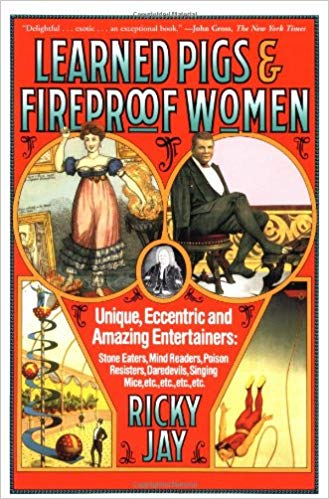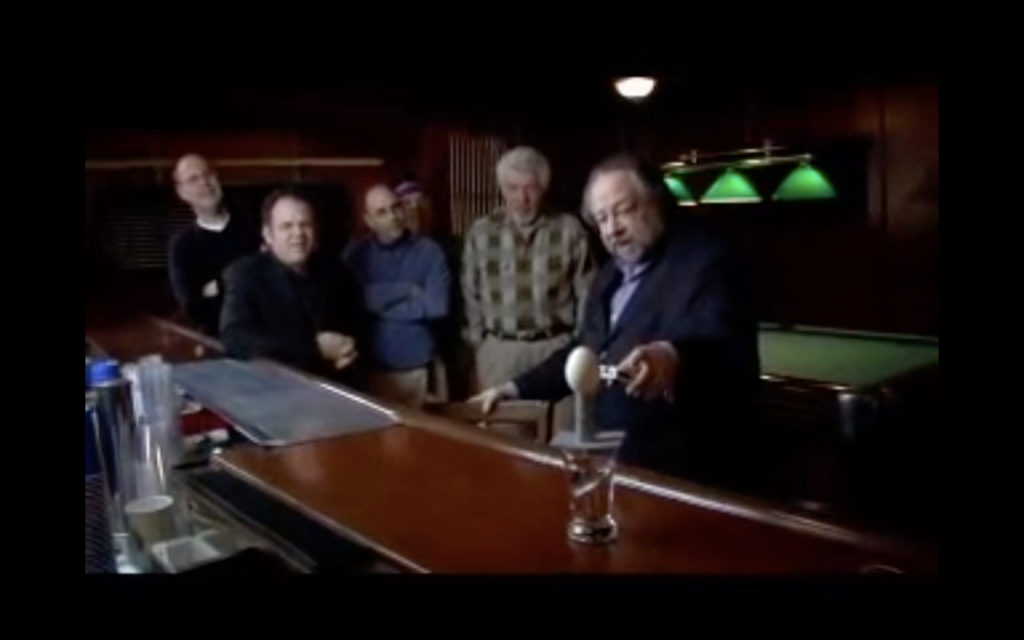Sleight-of-hand artist Ricky Jay studied card cheats, because cheating at cards is a sister discipline to close-up magic.
Jay once did an entire evening for a few friends, showing various card-cheating techniques. At the end of it, he also told a story.
The story involved a poker player who, when it was his turn to deal, reached into his coat and took out a straight razor.
He opened up the razor, made it glint in the light to show how sharp it is, and put it down in front of him on the poker table.
He then slowly looked around the table at every other player. And he said, with menace in his voice, “There will be no cheating in this game.”
Newsflash:
I don’t like playing poker. I’m also not a magician. I can’t do even do a single basic card trick.
I got interested in magic, and by extension card cheating, because I felt there was something about a magician’s misdirection that’s common to copywriting and effective communication in general.
When most people think misdirection, they think somebody waving a red scarf somewhere in the corner of your eye so you look away, and so you don’t see the secret action.
And that is one kind of misdirection. But there are many more kinds.
A good card cheat, magician, or just effective communicator, can do his secret trick right in front of you, without ever diverting your gaze. In fact, he can even make a big deal of the mechanism behind the secret trick, drawing your attention to it.
Which brings us back to the razor on the table. It’s an old card cheater’s trick known as “the shiner.”
The shiner can be a razor, like in the story above, or a large flat ring on the hand, or even a smart phone in more modern times, lying on the poker table.
The key is simply that the it’s an object that makes sense in that given context. It also has to be shiny, so the cheater can use it to get a quick glimpse of the underside of each card as he deals.
So now you know how to hide secrets in plain sight using an ordinary razor… or hairbrush (Parris Lampropoulos)… or gold necklace (Gary Bencivenga).
In other news, voting for the Best Daily Email Awards continues furiously. Today’s email will be the last email I send out before the deadline to cast your vote, tomorrow at 8:31pm CET.
If you know what I’m talking about, get voting so you don’t miss the deadline. And if you don’t know what I’m talking about, here are the details from my email yesterday:
===
I would like to announce the formation of the Best Daily Email Awards.
This is a new yearly award for merit in the daily email format.
Each year, the Best Daily Email Awards are selected by the prestigious and exclusive Daily Email Academy, which you are a member of by virtue of being a reader of this newsletter.
If you would like to nominate a particular daily email for a Best Daily Email Award, simply forward it to me before this Sunday, July 28, at 8:31pm CET.
Any daily email by any brand or person, in any market or niche, is eligible. You don’t need to explain your reasoning for nominating this particular email. The only restriction is you may only submit one entry, and that it’s actually a daily email.
And then, I, as the current acting Director of the Daily Email Academy, will collect the results, and announce the winners at the inaugural prize ceremony next week.
And yes, I’m 100% serious about this. So start forwarding now.


